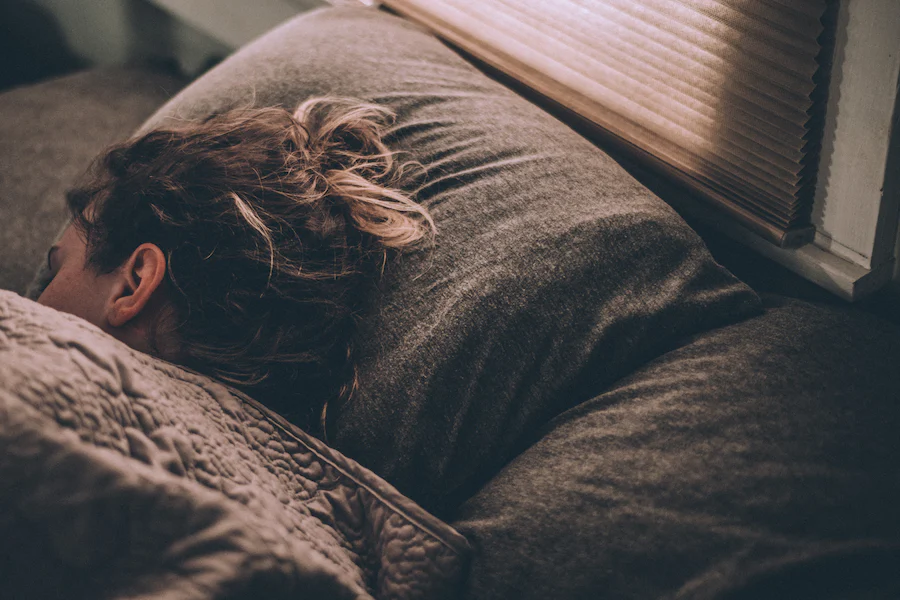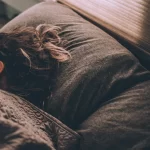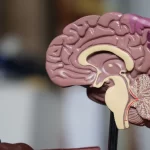Good sleep starts long before bedtime. Many of the things you do during the day will affect the quality of your slumber. So try these sleep-promoting habits.
Wake up at the same time every morning.
Our bodies operate on a circadian rhythm, a natural cycle that regulates various physiological processes over 24 hours. Consistency in waking up aligns with this rhythm, promoting a healthier sleep-wake cycle. Dr. Rosen advises against fluctuating wake-up times, as irregularity can disrupt the circadian rhythm. This means resisting the temptation to sleep in, even on weekends. By adhering to a fixed wake-up time, you reinforce the body’s internal clock, signalling that when it’s time to wake up, it’s time to get out of bed and start the day.
The importance of this consistency is further emphasized by Dr. Rosen, who suggests that, despite potential initial discomfort, maintaining a consistent wake-up time contributes to better overall sleep.
Get sunlight every morning.
Sunlight acts as a natural signal to the brain, instructing the melatonin faucet to turn off. Melatonin, responsible for inducing sleep, can contribute to feelings of grogginess and mental fog if its production continues into the morning. To counteract this, Michael Breus, a clinical psychologist and the author of “The Power of When” recommends aiming for at least 15 minutes of sunlight exposure early in the morning.
The morning sunlight serves as a powerful tool to reset the body’s internal clock and improve wakefulness. By getting exposure to natural light, individuals can effectively signal to their brain that it’s time to wake up and reduce melatonin production. This practice not only helps combat morning grogginess but also supports a healthier sleep-wake cycle.
Exercise for better sleep.
During the pandemic, reduced physical activity became a common trend, impacting sleep quality. Dr. Breus emphasizes that exercise is a simple yet effective way to enhance sleep, considering it as a form of recovery. The link between daily exercise and improved sleep is supported by at least 29 studies, revealing benefits across various types and intensities, particularly among middle-aged and older individuals.
The Sleep Foundation notes that those with chronic insomnia can experience a faster onset of sleep by about 13 minutes and gain an additional 20 minutes of sleep per night through regular exercise. However, Dr. Breus advises concluding exercise at least four hours before bedtime to prevent interference with sleep. Exercising too close to bedtime may raise core body temperature, potentially disrupting the sleep cycle. In essence, incorporating exercise into one’s routine is a valuable strategy to promote better sleep, but timing plays a crucial role in optimizing its benefits.
Cut off caffeine at 2 p.m.
Caffeine, with a half-life of six to eight hours and a quarter-life of approximately 12 hours, has a lasting impact on the body. According to Dr. Breus, if you consume coffee at 4 p.m., a quarter of the caffeine remains in your brain by 4 a.m. Given this, avoiding caffeine in the evening is a clear choice. However, Dr. Breus recommends steering clear of caffeine after 2 p.m. to allow the body sufficient time to metabolize and eliminate most of it from the system.
The advice to limit afternoon caffeine intake is grounded in the understanding that late-day consumption can interfere with the body’s ability to wind down for sleep. By giving the body more time to process and eliminate caffeine, individuals can promote better sleep hygiene and reduce the risk of caffeine-induced disruptions to their sleep cycle. In essence, the timing of caffeine consumption plays a crucial role in ensuring its effects do not linger into the night, ultimately contributing to a more restful sleep.
Follow the two-drink rule.
For those who consume alcohol, moderation and timing are key for a good night’s sleep. Limiting oneself to two drinks in the evening and stopping at least three hours before bedtime is advised. It’s crucial to alternate each alcoholic drink with a glass of water to stay hydrated. While alcohol may act as a sedative, offering a nightcap to aid in falling asleep faster, it actually suppresses REM sleep and induces disruptions, negatively impacting overall sleep quality. Dr. Breus emphasizes that the proximity of alcohol consumption to bedtime directly influences sleep quality, with closer intake correlating to poorer sleep. To optimize sleep hygiene, it’s recommended to be mindful of alcohol intake, both in quantity and timing, to ensure a more restful and undisturbed night’s sleep.



